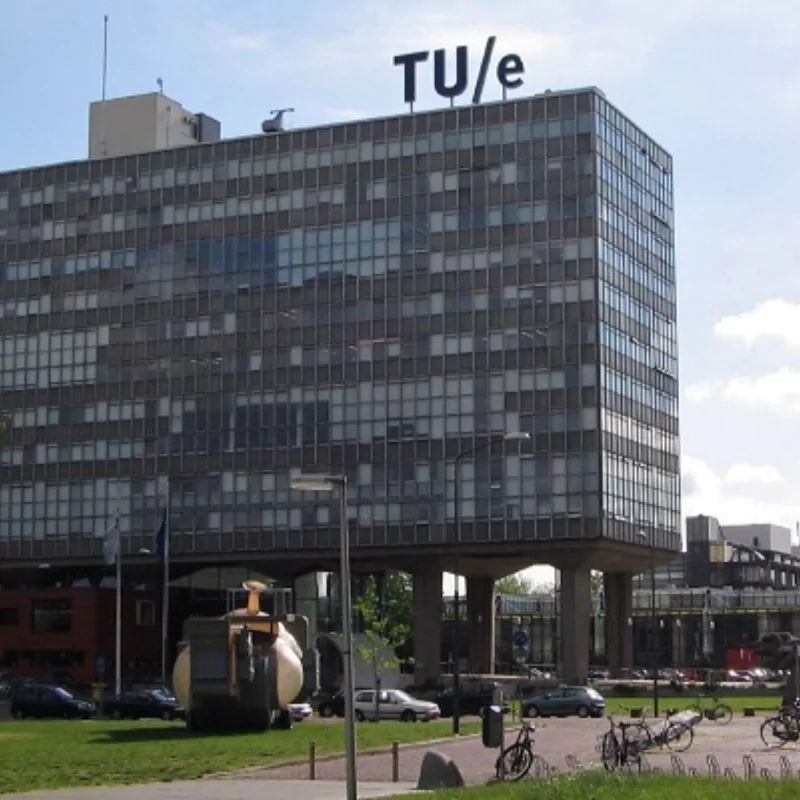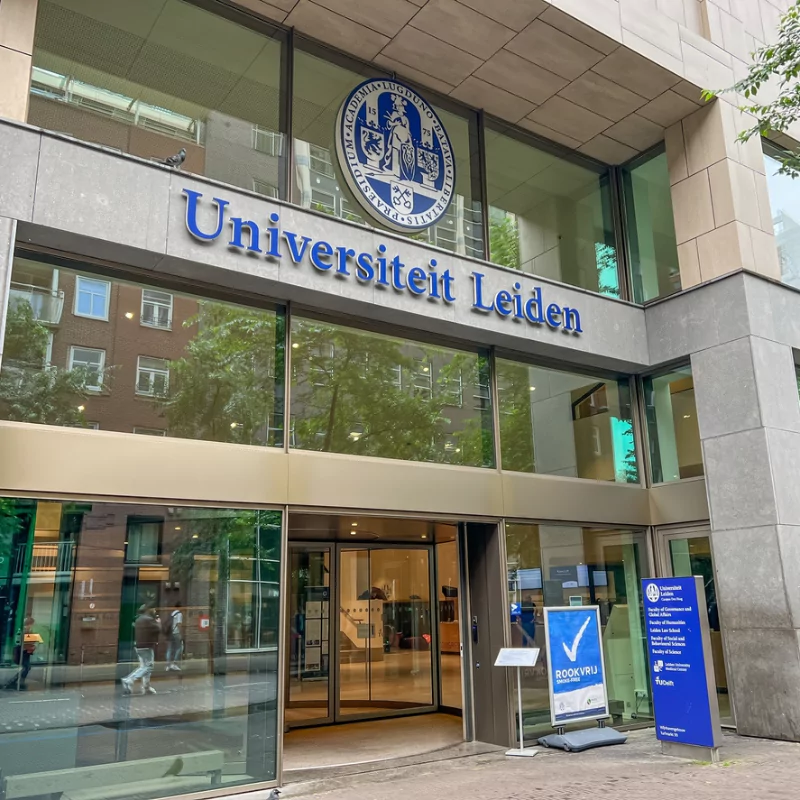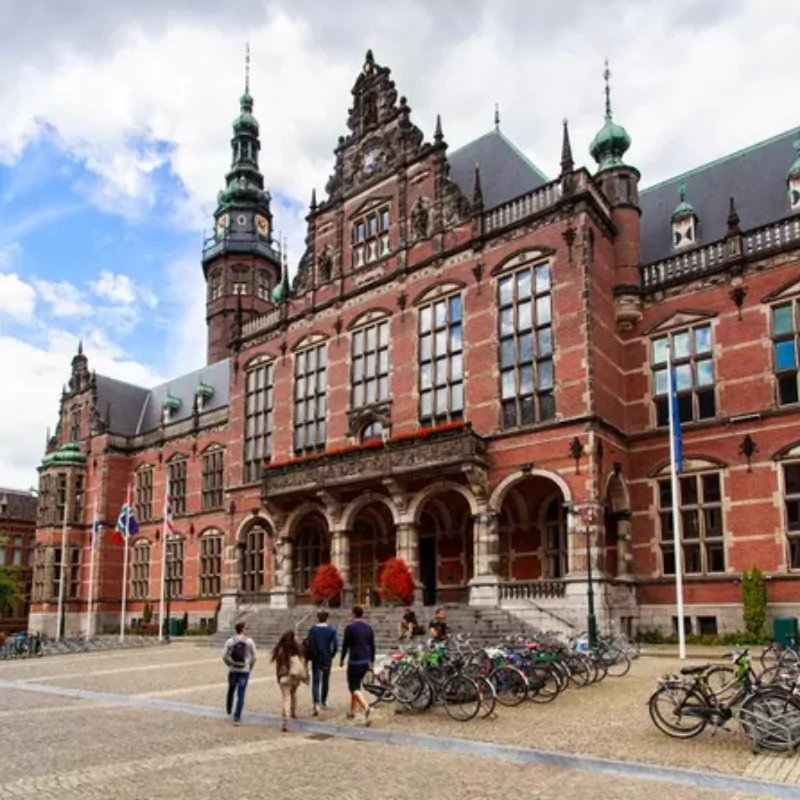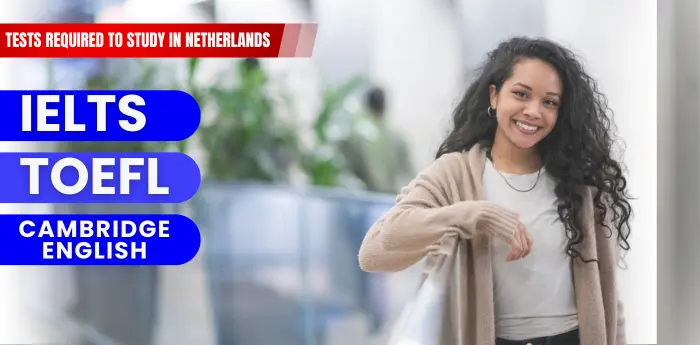
Announcements

Announcements
If you are seeking a vibrant and diverse study abroad experience then studying abroad in the Netherlands can be a perfect option for you. In recent years, 1 lakh+ students have enrolled in Dutch Universities, representing a steady rise/increase in the population of international students opting to Study in Netherlands. This thriving international community comprises students from over 160 countries worldwide, highlighting the country's appeal as a global education destination.
Also, the Netherlands holds the difference of being the first non-native English-speaking country to offer English language programs to international students. Students can choose from 2,100+ programs currently available across colleges and universities in the English language at the Dutch Universities. Each program offers a wide range of academic opportunities tailored to student’s learning needs.
13 of the Netherlands' premium institutions are globally recognised and ranked among the top 2% of world universities, reflecting the country's commitment to delivering quality education on a global scale.
So planning to Study in Netherlands for Indian Students can be a perfect option if you are looking for study abroad options.
Below, you will find the important points that you must know to study in Netherlands.
| Head | Details |
|---|---|
| Universities in the Netherlands | 55+ |
| Average Living Expense | €800 to €1,100 (monthly) |
| Popular Courses in the Netherlands | MIM in Netherlands, MBA in Netherlands, BBA in Netherlands, Engineering in Netherlands |
| Part-time Work Allowance | up to 20 Euros (hourly) |
| post study work permit in Netherlands | 12 months |
| Netherlands Study Visa cost | 210 Euro |
Here are some of the common reasons why Studying in the Netherlands is becoming a popular choice for international students.
Before you finalise a course/program to Study in Netherlands for Indian Students, you must be aware of the total cost involved in staying and studying in the Netherlands. Having a detailed overview of the cost involved can help you plan your budget accordingly before going abroad to study. These expenses can include tuition fees, accommodation, transportation, food & other expenses.
Below you can check out both the Tuition Fees & the Cost of Living in Netherlands
Check the cost of study in Netherlands for Indian students for bachelor’s, master’s and doctorate courses below.
| Course Level | Average Fee |
|---|---|
| Bachelor | From ₹ 2 L to ₹ 29 L |
| Master | From ₹ 2 L to ₹ 58 L |
| Doctorate | ₹ 6 L |
The tuition fees for some popular courses are given below.
| Course Name | Average Fee |
|---|---|
| MS | From ₹ 8 L to ₹ 29 L |
| MBA/PGDM | From ₹ 4 L to ₹ 58 L |
| MIM | From ₹ 4 L to ₹ 22 L |
| M.A. | From ₹ 4 L to ₹ 19 L |
| B.E. / B.Tech | From ₹ 7 L to ₹ 17 L |
Here, you will find the complete details of the cost of living in Netherlands for international students.
| Expense Type | Costs |
|---|---|
| Accommodation | 300-600 Euros/month |
| Coffee | 2 Euros |
| Cheese Sandwich | 3 Euros |
| Dinner in a Student Restaurant | 10 Euros |
| One-way Ticket in Public Transport | 2 Euros |
| Cinema Ticket | 11.50 Euros |
Find the right path with Meridean
The Netherlands is the home of world-renowned universities. 13 Netherlands universities secured rankings in the QS World University Ranking 2025. If you want to get admission to these universities to study in Netherlands, then check the list below.

#31
QS World Ranking

#24
QS World Ranking

#23
QS World Ranking

#18
QS World Ranking

#27
QS World Ranking

#23
QS World Ranking

#13
QS World Ranking

#24
QS World Ranking
Check the basic admission requirements to study in Netherlands.
| Where to apply | University Portal/ University Portals |
| Application Fee | € 75 to € 100 |
| Basic Requirements | Transcripts, Passport, Standardized tests for studying in the Netherlands |
| Additional Requirements | Updated CV, Statement of Purpose |
| English Language Requirements |
IELTS: 6.0
TOEFL: at least 550 (Paper-based) or 213 (Internet-based)
|
Simply planning & dreaming at top Dutch Universities is not enough, you are also required to be aware of the program deadlines & course seat availability. So let’s have a quick overview of the available intakes & their deadline if you are planning to Study in Netherlands.
However, irrespective of the intake you are planning to get admission, you must be aware of associated scenarios, requirements & deadlines. Hence, the best way to get all the required details is by interacting with experienced study abroad consultants.

However, some institutions follow a rolling application system, leading to different course start dates and ongoing application processes throughout the year. While most candidates focus on applying for either the Winter or Fall intakes, the flexibility of application timelines allows for options that best suit individual preferences and circumstances.
Connect With Meridean & Get Your Abroad Education Dream Fulfilled
The Netherlands is one of the top destinations with study abroad opportunities, offering 1700+ Bachelor, Master, and other specialised programs tailored to meet the diverse needs and interests of international students. Within this rich educational country, students can explore approximately 10 broad fields of study, each offering many opportunities for personal and professional growth.
Among these fields, certain disciplines have emerged as particularly popular choices among students seeking to Study in Netherlands. Such common study fields are Accounting, Engineering, Health Care, Social Science, Law, Computer Science, and Arts.
Below, you can check the top popular courses in Netherlands.
BBA in International Business
MS in Psychology
MS in AI & Robotics
MBA/PGDM in Business Economics
MIM in Business Economics
MBA/PGDM in Finance
MIM in Finance
MS in Biology
MA in Political Science
MS in Mathematics
To study in Netherlands, international students typically need to meet certain language proficiency requirements. The tests commonly required are given below.

You can apply for a Netherlands student visa as soon as you get a confirmation of program enrollment. However, there are certain criteria or visa type that you must be aware of if you want to Study in Netherlands. These types include a residency permit (VVR) and an entry visa (MVV).
If your course duration is less than 90 days, then you can apply for an entry visa or the MVV, but if the course duration exceeds 90 days, then you will be required a residency permit (VVR). Irrespective of the visa type you are applying to, certain requirements need to be fulfilled. Such include:
To further know the in-depth process of applying for & securing a study visa for the Netherlands, you can consider interacting with the study abroad consultations at Meridean Overseas. They can help you better understand the step-by-step process for applying for a study visa and getting a student visa conveniently.
Several financial assistance options are available if you are looking to Study in Netherlands For Indian Students. These options include financial assistance through awards, scholarships, student loans & other study incentives offered by recognised institutions & organizations. Even there are scholarship options that cover up to 100% of the tuition fees, allowing students to fulfil their study abroad dream without fearing any financial burden.
The majority of the scholarships & awards are specified for undergraduate students. But, if you are looking for postgraduate or doctoral programs then you might need to go through certain additional criteria to secure a scholarship at Dutch Universities.
| Study in Netherlands Scholarships | ||
|---|---|---|
| Scholarship Name | Eligibility Criteria | Amount Available |
| Holland Scholarship | International students applying for bachelor's or master's programs | Around 500 Euros for the first year |
| Orange Tulip Scholarship Program India | Indian students applying for bachelor's or master's programs with partner universities | Waives up to 25% to 100% of tuition fees |
| Orange Knowledge Program | International students | Varies based on program and institution |
| L-Earn for Impact Scholarship | Citizens of developing nations | Ranges between 10,000 to 22,000 Euros |
| Joint Japan/World Scholarship | Nationals of World Bank member developing countries | Covers tuition, health insurance, round trip, and living expenses |

I applied visa for Australia through this website . Mr. Prashant &Mr. Prakash made the job hastle free for me. They were friendly, helpful & available all the time .My work is done in a smooth way & I highly recommend them. Moreover, you can book the free counselling session with them that give you the proper guidance to study abroad. I have no complaints and I am very grateful for the support 🙏

Meridean Overseas is best in Ahmedabad. Prashant Sir is very supportive and gives his best efforts for every applicant’s visa process. They have very good coordination with universities in Australia. I got Australia Dependant Visa today, so very happy for this and very thankful to Prashant Sir from Meridean Overseas, his work is best. I am extremely happy with the Meridean Overseas Education, Ahmedabad.

I would like to thank you very much for your time and support during my visa adjustment process and for helping me to obtain the desired outcome. I am also very thankful for your help in preparing me for the university interview which made the approval of my visa adjustment very successful. Best institute in India if you want to study abroad. I am personally thankful for SOMYAA KHANGAROT ma’am. She is very supportive and also motivates the students. Again thank you so much MERIDIAN Overseas and their team. ❤️💕

Vineeta, the stellar counselor at Meridean Overseas, made my study visa journey for New Zealand overseas education hassle-free. Actually i didn't put my file in merdian, but I put in another consultancy, they are not gave such support. Also, I am wroking person. One day I see Video in Instagram and contact to Meridian Overseas. about my visas queries and my visa slots. So they always help me in without any fees. On that day my consultancy didn't call me for the slot opening. But Merdian team call me for the slots and because of that I booked my slots.
So I Appreciate their work and Also, I recommend to my family member and friends.

First of all i would say full team of Meridean Overseas is very hard working generous and supporting people and my consultant Mr. Shubhang is very honest and very supportive person and while in the meeting. He told me each and everything clearly and nicely. I was really very impressed and got so many information during the meeting. And you all won't believe the meeting was absolutely free . You can also go and meet the team They are very friendly and clean as glass. If you are willing to go to abroad please consider them and give them a chance to consult you.

I had a wonderful experience with Meridean Overseas. My counselor's name is Miss Tanya Soni. She was incredibly helpful in every aspect, her guidance helped me a lot in understanding my process and solving my problems with the best possible solutions. I am very interested in studying in Poland, and Tanya ma'am helped me significantly, because of her guidance, my dream has come true. I'm very grateful for choosing a counselor from Meridean Overseas.

So far, my experience with Meridean Overseas has been truly remarkable. The experts at Meridean Overseas possess impressive knowledge and demonstrate a strong commitment to providing friendly service to their clients. My process consultant Miss Rashi, stands out with her profound understanding and consistent helpfulness. She is adaptive and ensures the completion of tasks in a timely manner. The team responds promptly to queries, and I am genuinely satisfied with the assistance received thus far. I have high expectations that the remainder of my visa application process will be handled with the same level of professionalism and efficiency.
Thank you, Meridean Team.

My experience with MOEC has been great. I would recommend MOEC for students who wants to pursue their further studies in abroad as their staff is extremely helpful and suggests the best. My counsellor has been really supportive throughout the entire process, from course selection to till visa approval. She always clarified my doubts and helped me in every single way possible and I highly appreciate it.
Ans. The Netherlands has mild summers and cool winters. It can be rainy throughout the year.
Ans. Yes, graduates from Dutch universities are eligible to apply for a one-year residence permit for orientation year, during which they can work full-time or start their own business.
Ans. Non EU/EEA nationals must apply for a study visa and a residence permit to study in the Netherlands through the Dutch embassy or consulate in their home country.
Ans. The Netherlands is generally considered safe for international students, with low crime rates and well-developed safety infrastructure.
Ans. Some of the top universities in the Netherlands include Delft University of Technology, University of Amsterdam, and Leiden University.
Ans. Applying for scholarships during your studies is possible, but availability may vary depending on the scholarship provider and eligibility criteria.
Ans. Yes, many universities offer Dutch language programs for international students to help them integrate into Dutch society.
Ans. For English-taught programs, most universities require a minimum score on English language proficiency tests, like IELTS or TOEFL.
Ans. Yes, under certain conditions, graduates of Dutch universities can apply for a residence permit, during which they can search for employment or start their own business.
Ans. Yes, Dutch universities are known for their research excellence and often collaborate with international researchers and institutions.
Contact MOEC Experts for Study Abroad Guidance!
